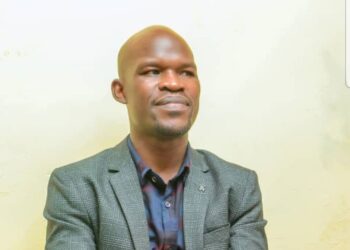In 2013, a journalist called Mukiibi Sserunjogi, in his final days, came to a Media house I was working begging for money for treatment. He passed on days later. REST IN PEACE 🙏🙏🙏.
Sserunjogi was in a very bad shape. I saw him and broke down. Tears are still running down my cheeks as I write this.
Sserunjogi, popular as he may have been, I had never met him. But here was a man using his contacts in our newsroom to beg for some money to survive. On that day, I forfeited my lunch, and frankly I gave him all the little I had in my pocket. I was a broke journalist too.
Sserunjogi died from an incomplete building in Mengo. He had turned into an idler. He didn’t die; he rested because the pain was too much.
Although I had met him once in bad shape, when he rested, I went to bury him in Nangabo, Kasangati Wakiso district.
From the day I first met Sserunjogi to this day, I concluded that the problem of journalists in Uganda was not state security organs that once in a while brutalised us, but employers. I stopped condemning Police and RDCs but employers are difficult to condemn.
Media owners in Uganda behave like big corporations. You talk about them, you are finished.
But look! Most journalists are living in a State of despair. Journalists will never talk about themselves because they fear to offend their employers.
Journalists rights groups, which I loved to associate with, love to condemn the Police, Army, RDCs in their reports but will never talk about media owners because they fear to be blacklisted. Denying journalists rights group Airtime is condemning them into obscurity.
Most Journalists in Uganda cannot treat themselves when they are sick. Majority can’t have lunch at their work places, and a deodorant of 10,000shs is luxury. What they earn is so little to get the basics.
Yes, there will be journalists who will progress and are used as experiments to demonise those that have been condemned to a life of poverty.
Those journalists who progress are mostly corrupt; collect money from different sources and portray themselves as enterprising. These also have a way of maneuvering the system to be quite visible. You see them everywhere.
But let me tell you, most journalists condemned to a state of poverty will never progress from what they earn. Never. They are loyal and genuine. Theirs is a service. These ones sometimes are restricted.
What people don’t know is that some journalists also behave like a mafia cartel. I often write about a journalist who wanted to take me his way in 2014. He strongly lobbied but I declined. Today, in real sense, compared to me, he has progressed; and his life changed fundamentally. It’s not that he could write a better story than I did.
I know other two journalists whose names I will withhold, but passed on around 2013 or there after. They literally surrendered. One of the deceased was replaced by a journalist who has since turned into merchant.
So, the story of Sserunjogi and how he ended, like another unfolding is what journalism is in Uganda.
But let’s assume that journalists are the ones who aren’t enterprising like the media owns they work for, how then can media houses help journalists in their hour of need?
I normally say to understand exploitation in the media, journalists work for organisations that can’t help them secure credit/loans because employers know their employees salaries or allowances, if any, cannot pay back.
But while media houses may not pay well and yet ordinary people revere journalists as powerful, when need arises, let media owners be dynamic as they are enterprising.
To get a lisence in Uganda, you must be rich or with good political and business connections. Use your wealth or connections as goodwill. Benevolence and kindness are some of the highest qualities of humanity.
Of course, we have journalists I talked about who progress because of other reasons I mentioned, and will be quick to say no rich person wants to give out free money. What is money for if your former employee needs help but can’t get it?
And it is true majority journalists don’t have contracts because employers don’t want to have an obligation to them. It’s deliberate. I know a Media house that gives journalists an ID of only three months. Pathetic to say the least.
I don’t know Yusuf Baliruno and never met him, but I understand his situation.
To resolve it, you only need two things: empathy and compassion.
Businesses should never exist to exploit employees or cheat clients. Businesses should thrive because employees and clients felt they were part of it.
MY VIEWS MY OPINION.
Do you have a story in your community or an opinion to share with us: Email us at editorial@watchdoguganda.com











